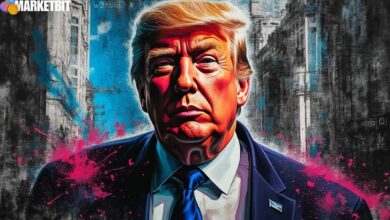Crypto Markets React as U.S.–E.U. Tariff Truce Nears

- Tensions affect crypto markets, with notable sell-offs observed.
- Financial uncertainty increases market volatility.
- Debates involve Federal Reserve rate cut pressures.
Market Reactions
The impending U.S.–E.U. tariff truce marks a potential shift in trade policy, reducing tariffs from 30% to 15% on major goods. This agreement occurs amidst political pressure on the Federal Reserve concerning rate cuts, amidst scrutiny of bank independence.
U.S. President Donald Trump is at the forefront of negotiating the tariff adjustments, with the European Commission leading talks from the E.U. side. The absence of direct social media engagement highlights a reliance on official announcements regarding the tariff negotiations.
Crypto-related public firms faced sell-offs as market reactions followed the tariff escalations. MicroStrategy, Coinbase, and Robinhood noted declines after announcements. Bitcoin experienced a notable price drop, and trading volumes surged on major exchanges.
“In the short term, tariffs would be negative for Bitcoin. Unlike gold…” — James Butterfill, Head of Research, CoinShares. Butterfill notes that trade frictions and resulting economic uncertainty tend to reduce demand for risk assets, including crypto. Read more
The tariff truce influences economic stability, affecting market sentiment, and investor confidence. Political factors interplay with financial decisions, shifting structure expectations within crypto and broader economic landscapes.
Tariff-related instabilities have historically resulted in Bitcoin price corrections. Such financial outcomes might influence trends in monetary policies, potentially affecting economic scenarios and market structures globally.




